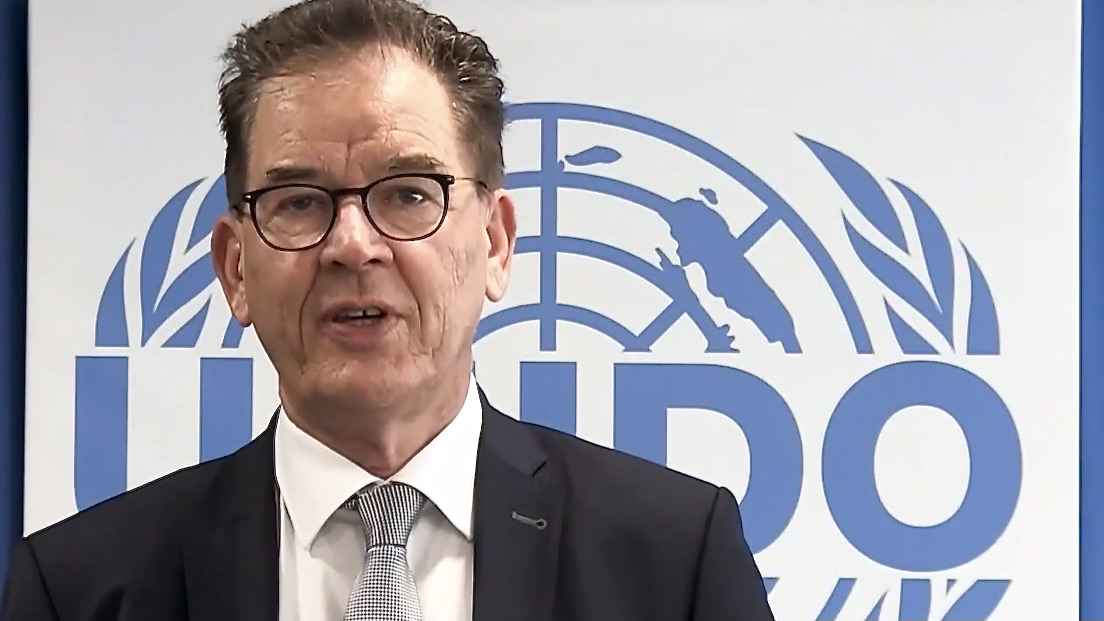Transforming commitments into action: UNIDO Director General addresses UN-Energy meeting
04 May 2022

NEW YORK, 4 May 2022 – The United Nations Industrial Development Organization (UNIDO) is ready to work with partners to promote energy transition solutions, including the development of green hydrogen to decarbonize critical industries such as steel and cement. This was the message delivered by UNIDO Director General Gerd Müller during a virtual meeting convened by UN-Energy to launch outcomes of the UN High-level Dialogue on Energy: the UN-Energy Plan of Action towards 2025 and the Energy Compact Action Network.
The UN High-level Dialogue on Energy was a summit-level UN General Assembly event in September 2021. The Dialogue focused on ways to substantially advance the transition to clean, affordable energy for all by 2030 and net-zero emissions by 2050, resulting in a Global Roadmap for Accelerated SDG 7 Action containing recommendations on five thematic areas and milestones for 2025 and 2030.
Müller said, “Without energy, there is no development and no progress – no jobs, no industrialization, no growth. Almost a billion people today live without access to energy and electricity – the poorest of the poor, often women, are hit the hardest. But it is also the industrialized countries that are looking for sustainable solutions.”
He continued, “Together, we will champion international cooperation to develop new technologies, and ensure to leave nobody behind in the energy transition.”
The event also featured a presentation of Energy Compact coalitions and the activities of the Energy Compact Action Network. Cecilia Ugaz, Director of UNIDO’s Gender Office, told viewers, “We urgently need to increase our efforts to reduce greenhouse gas emissions, of which we know energy use accounts for over 75% and, importantly, we cannot afford to neglect the role of women in the sustainable energy transition….We need women policymakers, entrepreneurs, and women engineers to shape a climate-neutral future.”